|
93/100 (9.3 out of 10)
What an imaginative, adventurous, beautiful little ride! “Mira & the Mysterious Dragon” is a fun, lighthearted children's book by Yuqian (Jennifer) Wang. It follows the titular character, Mira, as she is prompted to go on a winding, weaving quest to find the mysterious dragon. Along this journey, Mira encounters many strange and interesting characters. She meets Ella the beautiful orange butterfly, dolphins, Molly the mermaid, Terry the sea turtle, Leo the lion, Broody the ghost, Mr. Magician, and, of course, Delilah the dragon. Mira also adventures to many fabulous and fantastical locations like Drift Land (which includes an Island/ocean-like environment filled with mermaids and sea creatures as well as a jungle) and a magical, haunted castle full of friendly ghosts, pumpkins and bats. This book gets an A and top praise for its creativity and for effectively portraying a spirit of adventure. The art is bright as are the characters. It has an unrefined, organic appearance to it, likely being hand-drawn and colored. Mira herself has a very simple, chibi-like appearance, possibly serving as a blank-slate protagonist whom the reader can get inside of. The animals are adorably anthropomorphic. The environments portrayed are all fresh and exciting. They are creatively put together. In fact, the backgrounds are the most beautiful things about this book. They're colorful and really pop out at you. If there were any drawbacks to this book it would be that it is about 10-15 pages longer than most children's books we've read. It's also far wordier than most, and there's a profound absence of things that get kids to stick around like rhymes and patterns. Wordiness is something that you have to be extra careful with when crafting a children's book. Children have especially short attention spans and quickly lose interest and patience if the story plods along or drags, and that's kinda what this story does. It's comparable to playing hop-scotch with hurdles between the vertical bars. It takes extra time and energy to get through what should be a brisk, fun experience. Also comparable to “advanced” hop scotch is the book's choppy, erratic nature, skipping from one thing to another. It can't seem to decide who or what it wants to focus on, it just seems to want to throw everything including the kitchen sink at the reader. You like cute dolphins, talking turtles, and dancing lions? Here they are in a book with a haunted castle and a sweet, charming dragon. We're all for being imaginative and creative, but there needs to be a degree of this that actually makes sense. We seriously don't know what's going on most of the time (or what the point of all of it is in terms of actually finding the dragon) and we're highly experienced readers. This is probably the 120th or so book we've read this year. Is it possible that this actually comes from the imagination of an eight-year-old sorta like Axe Cop? That might explain a bit. But we digress. This book is impressively imaginative and bold. Check it out on Amazon!
0 Comments
Score: 94/100 (9.4 out of 10)
“Passamaquoddy Legends” by Michael Cook is a fun, enlightening, exciting collection of Passamaquoddy Indian stories. If there's anything we unanimously love in terms of storytelling, it's mythology. There's just something about myths and legends that's captivating. These stories are often dream-like, absurd, and typically so interesting that you can't take your eyes and ears away no matter what 'common sense' or reasons say. These Passamaquoddy Indian stories compiled and relayed by Michael Cook capture that spirit of profound enchantment and intrigue. You could imagine people gathering around the campfire telling these stories across generations. They're told in that fanciful way, pretty much like fairy-tales, even filled with fairy-like creatures and adorable personified animals. The book holds quite a unique and special place in the literary world as there aren't many well-known books about the Passamaquoddy and their culture/beliefs. Have you heard of them? There are many such books about the Cherokee and the Navajo. We've seen first-hand what can happen to a culture and a language like in Hawaii or Turkmenistan after generations of half-hearted efforts to preserve it. These older indigenous cultures are constantly in danger of being forgotten and lost to the annals of time. Books like this one are crucial to the preservation of these cultures and beliefs. Even language is preserved to an extent through this book, as terms and phrases of the Passamaquoddy are spread throughout, their significance being made known. The Passamaquoddy stories seem centered on a Herculean or Arthur-like character named Glooskap, a legendary figure whose name literally translates to “the Liar” despite him usually being seen in a heroic and positive light. He is called “the Liar” because Glooskap left the Passamaquoddy in the midst of a great struggle, promising like King Arthur or General MacArthur to return, but he has yet to return. In an almost messianic manner, he is said to be making arrows and preparing to return at the end of time for a great battle in which he'll overthrow the Iglesmani (white man). Sorry, Caucasian peeps, but the animosity the Passamaquoddy feel for the white man is very understandably. It's a tale as old as time: a better-armed imperialistic group came in and threw their weight around at the expense of the natives. We are told: “...the white man came, and with ruthless hand Cleared the forests and sowed the land, And drove from their haunts by the sunny shore Micmac and moose, forevermore.” That last line brings up another major aspect of Passamaquoddy culture, at least from what we can tell from reading these stories: their affinity for animals and nature. In this book, we see a range of stories about specific animals, not all of them necessarily viewing them in a positive light, but all of which seek to explain their specific place in the ecosystem. For example, there's an explanation for why turtles scurry into the water whenever humans are around. There are stories about wolves (the children of Lox, the villainous god), otters, rattlesnakes (“saucy Indians”), raccoons, beavers (previously “monstrous beasts” whom even Glooskap had to slay), bears (“mooin”), squirrels ("mi-ko"), sharks, black cats (“Po'guan'k”) and, probably most importantly, moose. The moose seem to have been critical to the survival of the Passamaquoddy who made homes and clothing out of their hides and ate/cooked with their tallow. Master Moose seems to hold a special place in the hearts of Passamaquoddy. There are also stories in here that are just so much fun to read, stories that are just hilarious or so absurd that they come across as hilarious and/or cute. For example, there's a story in here in which Glooskap, after just having his giant dogs fight off some other giant dogs, is congratulated with necklaces made of sausages that are in turn made of bear fat and entrails. We then get a line describing these necklaces as “garlands of enchanted sausages.” There's a story in here in which a crane—in typical male bodybuilder fashion—become narcissistic but also insecure after repeatedly getting complemented by weasels on his long legs (and probably his small calves). He becomes hungry for validation and thus vulnerable to butt-kissing by Lox, the god of mischief, who tells him his legs are well-painted. Speaking of Lox, that brings us to another major aspect of and proposition made by this book: that Passamaquoddy legends may have actually been influenced by the Vikings, presumably those from Newfoundland and/or Greenland, and possibly other white settlers they came across. Lox is very clearly Loki from Norse mythology, even having basically the same name and filling the same role. He is often also compared to Satan in Christianity. And Glooskap, as mentioned before, has a very Christ-like role in the legends, even prophesied to return in the end-times and win a great battle akin to Armageddon. Another similarity to Norse mythology is the presence of elves & fairies (“Mikumwess) or small elves (“Oonabgemessuk”). These terms for elves and fairies seems to be used interchangeably. There's also the fun and interesting use of poetic verse and songs to tell stories. For example, when the weasels tell Uncle Crane that he has great legs, they do so in song. The clams—yes, the clams—have a song. And it's adorable to imagine. Overall, this might be one of the funnest and most interesting books we've read so far this season! Check it out! Score: 94/100 (9.4 out of 10)
“Einstein's Desk” by brothers Domenic Melillo & Dr. Robert Melillo is a fascinating mystery thriller with sci-fi elements, at least that's how we'd best describe it. We had very high hopes and expectations for this book as it comes from one of our new favorite authors, Domenic Melillo, who penned one of the best romance novels we'd ever read in “A Major League Love!” Also, apparently, Dr. Robert Melillo is one of the leading brain researchers on the planet. This book didn't disappoint, but it definitely was quite odd and different from anything we were prepared for—for better or for worse. What you have here is essentially season four of “Lost." It is full of serious moments that are actually humorous. It is overflowing with over-the-top melodrama including the presence of villainous Nazi special agents akin to “Indiana Jones and the Raiders of the Lost Ark” along with the prospect of time traveling to meet Albert Einstein himself! This book goes balls to the walls. It's a really weird book that sometimes borders on absurdity, but we can dig weird and we can understand absurdity. Interestingly, this book starts out very grounded. We're introduced to our main protagonist, Ian Petrie, by his parents. His parents are both worried and hopeful due to Ian being born and growing up with several health problems and eccentricities which they mistake for autism. Ian is actually a very intellectually-gifted child with a pension for thinking outside the box, recognizing patterns, and solving abstract patterns. Ian's parents are told by an expert that Ian isn't autistic, but rather shows many of the eccentricities shared by super-geniuses like Albert Einstein. In fact, he directly compares Ian to Albert Einstein, so much so that Ian grows up looking up to and idolizing Einstein, learning and knowing everything about the famed genius. Or so Ian thinks... And here is one of the many alluring mysteries of this book: what secrets might Albert Einstein have taken with him? Furthermore, who is the mysterious recipient of Einstein's last known correspondence, a correspondence which implies he may have come up with a grand unifying theory of physics that he never revealed? What would have happened if Germany or the surviving Nazis had possession of Einstein's knowledge of potential nuclear energy? Is there something even more dangerous than nuclear weapons? What special relationship if any might Einstein have had with Nikola Tesla, another brilliant scientist and visionary who—historically speaking—criticized Einstein? Could Einstein have really made time travel not only theoretically possible but also practical? To avoid some of the spoilers to these questions, don't read the rest of this review. Just check out this cool book on Amazon! For the rest of you who are sticking around to read this review, we're going to try to just do what we always do: be thorough, thoughtful, and fair. There may be some spoilers ahead, so be forewarned. Anyway, Ian Petrie is a compelling enough protagonist for several reasons. One, he's a super-genius who demonstrates an impressive pension for figuring things out. That's always something we love to see in our protagonists: they use their wit. Another thing about Ian is that he is quite human, not so dissimilar to Einstein himself in his lust for women, but Ian is almost definitely a better lover to Angelina than Einstein was to either of his wives. If you're not aware, Einstein was not very kind or loving to his first wife, Mileva, or to his children, one of whom he put up for adoption because she'd get in the way of his career (we don't even know this daughter's fate) and the others who rarely saw their father. He also continued to cheat on Mileva, eventually with his cousin, Elsa, whom he eventually married. These things are a little interesting to note as this book seems to portray Einstein as most of us see him: in a very idealized light. He is seemingly “the most” and “the greatest” of everything science-related—the Michael Jordan, Tiger Woods, Wayne Gretzky, or Tom Brady of science. What we often forget is how flawed a person he was, and that there was a lot of context missing from his discoveries. For example, people often consider him the father of the atomic bomb, but he had nothing directly to do with the Manhattan Project that constructed it, just coming up with the relationship between energy and mass, thus the ability to release energy from matter. This book continuously portrays Einstein in about as idealized a light as you could imagine. Yes, there are times when he does show a human side that defies this notion of him being some kind of omniscient psychic being whose intellect far surpassed all others. For example, despite the grandfather (and other) paradoxes that he must be aware of, he still asks how he will die—something which the real Einstein didn't seem all that concerned about when he actually did die (refusing surgery). There are so many other layers of this beautifully chaotic book. For example, we get a glimpse into the time in Einstein's life when the Nazis ruled. We even see that his life is intricately entangled in the conflict between Hitler's Germany and the rest of the world, as stored away in his (and, in some contexts, Nikola Tesla's) mind is knowledge that could lead to the building of superweapons: laser cannons, atomic bombs, and even antimatter weapons—weapons that would make even nukes appear like a candle by comparison. It's a bit... over-the-top, but there's some truth behind it and a degree of this which is grounded in reality. After all, Einstein's discoveries made the atomic bomb possible, something which—in the hands of someone like Hitler—would have put the whole world in danger. In this fictitious but believable telling, a fresh generation of Nazis are after this research, hoping to use it to bring the world to its knees and create what they even call a “Fourth Reich.” Another layer of this is the mysterious recipient of Einstein's last correspondence at Princeton according to this book. His name is Clarence, and Clarence parents have a real good marriage. As fate would have it, it turns out that Clarence is not only still alive, but he's also still at Princeton, and he happens to run into our protagonist, Ian, who ironically questions him about Einstein before knowing who Clarence really is. Anyway, Clarence can't spill all of the beans because he gets home-office-invaded by some home-office-invaders who push him into a state of delirium through drugs or something, and by the way, these home-office-invaders work for the Nazis or the FBI or something. That's right, our hero has the Nazis and the FBI on his tail, and it's humorous how lightly the characters sometimes take this. Speaking of character, there's also Dr. Mills and Angelina. Dr. Mills is basically Alfred from Batman or Jarvis from Iron Man. He's this wise old man who clearly knows what's going on, but just facilitates the butt-kicking by the main hero. Angelina is a beautiful, gorgeous, punk-rock-looking Croatian woman. We know this because the authors constantly remind us that she's a beautiful, gorgeous, punk-rock-looking Croatian woman. She is, in fact, so beautiful, gorgeous, punk-rock-looking, and Croatian, that our protagonist considers getting into punk rock and moving to Croatia. She also has a photographic memory or something. She's spunky in her own way, sometimes teasing Ian. There's also Mario Ducati, the clearly evil guy pretending to not be evil who commissions them to do research for him. We couldn't read his name without saying, “It's-sumi, Mario!” And there's the Fuhrerin, who is supposed to be written as a sick, sadistic villainess but instead comes across like she belongs in a different kind of novel entirely (the “Fifty Shades of Hey Now” type). This is a really chaotic and pretty wild book that takes a high degree of suspension of disbelief, but if you can get to that point, you can enjoy this in the way you'd enjoy something like “Lost." If you enjoy some mind-bending, imaginative fun, then check this out on Amazon! Score: 94/100 (9.4 out of 10)
“Be a Giant Killer” by Ed Norwood may be the best Christian non-fiction book we've read. If it's not, it's very close! And considering that we've read at least a dozen (likely more) this year, that's saying a lot. Of course there was “Revelation Through Science” by Governor James Martin, PhD last season, but that was heavily focused on chemistry and biology with a hint of philosophy. There wasn't too much actual discussion of Christianity or religion in it per se. On the other hand, we've seen some really out-of-the-ordinary, somewhat bonkers spirituality books, many of which don't offer practical advice, or the ones that offer practical advice lean toward things we're not so sure the Bible actually promotes like wealth & prosperity or faith healing. “Be a Giant Killer” stands apart in that it offers great and positive life advice from a Christian perspective without being over-the-top, ridiculous, or scammy about it. This is actual, practical life advice that you can actually, practically use to be happier, healthier, and closer to God. Heck, it even reminded us to start praying again, and that's saying something. So, what is this book actually about? The book focuses on overcoming the biggest roadblocks to our success and happiness in life—to our self-actualization—or, in this spiritual/religious context, fulfilling God's ultimate purpose for your life. In one sense, this book is thematically and stylistically very similar to “Doubt Your Doubts” by Rachell Kitchen, which we reviewed two seasons ago. While Kitchen had focused on combating and overcoming what she called your “Gremlins” or your “inner Rachel” (a negative alter-ego who stands in your way), Norwood calls these things “Giants” akin to Goliath or the people of Canaan who opposed the Israelites in the Bible. Your “Giants” are things like addiction (to smoking, drinking, drugs, bad foods, idolatry, sex, pornography, etc.) and also things like self-doubt, lack of faith, and procrastination. These “Giants” are the things that, Norwood argues, keep you from realizing your full potential. So how is this book any different from other positive-thinking, positive self-talk, and self-actualization/affirmation books? For one, it's well-written. For another, it's actually pretty interesting to read. And, of course, there's a spiritual or Christian slant to it if you jive with that sort of thing. Even if you're just an agnostic or not necessarily a Christian per se, this could still be a pretty interesting read. For one thing, to be blunt, Ed Norwood isn't massively full of crap. He's not a scammy televangelist trying to get you to mega-tithe your earnings in exchange for a miracle. He's actually very down to earth and very clearly has tremendous ethics and moral standards. Right off the bat, you're treated (or horrified) by the example of Jim Jones and the 1978 Jonestown massacre. The author uses this tragic event in which over 900 people were killed as an example of what happens when you allow evil, toxic people and thoughts to poison your head. These evil, toxic people and thoughts create a cage around you, they encircle and entrap you, they keep you from seeing clearly and realizing that there's a better way: a way out—hope. The devil uses these kinds of people and thoughts to convince us that there's no hope, no way out, no escape, no hope for upward mobility, no point in going on. These things create a “wilderness” for us like the Israelites before they could inherit the Promised Land or Jesus before he could begin his ministry. There's temptation there, and it's our job to find the faith in God and accept the strength and wisdom to resist that temptation. What's very encouraging about this book is that it reminds us that we matter. We are made in the image of God. Our lives have importance and meaning. We have purpose: a purpose to do something special on this earth whether that means running for office, starting a new business, getting married, starting a family, or ministering a church. Norwood reminds us that not all good things come quickly or all at once, often they take time. For example, the Israelites waited a whole generation to inherit the Promised Land, but while they were waiting, they were cultivating that future generation that would eventually take it—the ones who would go on to conquer it in the name of God. God's plan is always in motion and in action, whether we realize it or not, and he is always nudging us forward, we just have to be willing and able to listen. Norwood also ventures into the realm of ethics by reminding us that even though we are entitled to good things as children of God, we have to remain ethical in obtaining them. Achieving things through crime or deception are not the actions of a child of God. For example, when Norwood was nearly broke, $10,000 was accidentally deposited into his bank account. Using this money, which clearly didn't belong to him as it was the result of a mistake, would have been unethical. So, instead of spending this $10,000, he trusted that God had something even bigger and better in store for him than just that money and called the bank to report the mistake. Ultimately, Norwood founded his own organization, the National Council of Reimbursement Advocacy, which has stood since 2000. Norwood has become prosperous, making far, far more than that $10,000 per year. He says that the times being on welfare prepared him for a lifetime of making millions. This book is incredible in that it encourages you to see the bigger picture in the little things. Every time we make a decision God would be proud of, we are coming closer to him and to our purpose in life. Check out this highly-recommended book on Amazon! Score: 94/100 (9.4 out of 10)
WOW! “The Only Blue Crow” by Tuula Pere is not your typical children's book, and we love it for that! This beautiful, lovable, touching little children's book is full of amazing things. A deep, dark, somber, melancholy tone pervades this book from beginning to end, although glimpses of hope and light are also present. For a book starring a crow, you'd expect something a little darker. No, there's no violence or severity in this book, but the themes of sorrow, loneliness, and sadness are prevalent. You could even argue that the crow suffers from some degree of depression, but don't let that scare you away as a parent. This book isn't intended to make you or your child depressed or sad, it actually seems to be made to help children to come to grips with their feelings and to realize that no matter how bad things seem, there's always hope and always light at the end of the tunnel. There's always someone out there who cares about them whether they realize it or not. There's always some special purpose for their life, and there's always a special place for them in the world. These are powerful, beautiful, meaningful lessons for kids to learn. The book stars the titular Blue Crow, a friendly, lovable, well-meaning character who'll definitely steal your heart with his personality and his quest for friendship and companionship. The Blue Crow is the only one of his kind that he knows of. One day, when he sees a flock of black crows, he kindly goes to visit them as a show of friendship. Rather than being friendly back, the black crows are mean and spiteful to him, telling him that there are no such thing as blue crows and that he must be crazy. They essentially tell him that he can't be one of them because he's too different. Although this deeply hurts him, the Blue Crow doesn't immediately crumble under the weight of his sadness. Instead, the Blue Crow tries to cheer himself up by collecting and growing blue flowers and playing with the blue butterflies. Sadly, even these things don't go according to plan. The blue flowers whither, and the blue butterflies live only a short time due to their brief lifespans. These things understandably sadden and depress the Blue Crow who seeks refuge in a cave away from everyone else. It's a very touching and heart-wrenching scene, and the Blue Crow's emotions are incredibly well put across through the beautiful art and words. The Blue Crow is eventually approached by a friendly figure: a female owl who tells him that there's a whole world out there full of blue birds of every kind including blue crows like him! The Blue Crow then goes on an adventures seeing all these different kinds of birds and the book ends in an open-ended manner as the Blue Crow is (we assume) about to meet another blue crow. The writing is decent, but there are times when lines just don't read very well out loud. For example, lines like “At last the tired bird fell asleep” and “He wanted to find out right away” are stumbling blocks when you consider the small size of the text against the mostly-blue background. And it's also quite wordy, which is probably the main issue with this book. However, unlike some other wordy children's books, the character and the story are engaging enough to still compel the reader to trudge on. As mentioned briefly, the art in this book is really special. It appears to be mostly watercolor. It is colorful enough to appeal to kids but not overwhelming to the senses. Check out “The Only Blue Crow” on Amazon! Score: 93/100 (9.3 out of 10)
“The Schatten” by Ashley Greathouse is a short little paranormal mystery novel that packs a huge punch! In as few as 80 pages, the author crafts a story with humor, intrigue, interesting characters, and—above all—mystery. Who or what is the shadowy figure known as the Schatten? Is it a man? A demon? A ghost? A state of mind? A figure of one's imagination that drives even the best of us to kill? What is the mystery behind Lisa's family? What secrets did Grace take with her to the grave after dying from brain cancer? What is the truth behind Lucy's grandfather who served in a Nazi concentration camp? Who are the Ahnerebe and what role did they play under the Third Reich? Who is Dr. Harrison? How old is Lucy? Why does she act like a pouty six-year-old sometimes and a chain-smoking forty-year-old at other times? Has Obi-Wan talked to her about her use of death sticks? What did the dudes like William and Gerald do in this book? Cause we honestly forgot. Why is Bea so annoying? How can we still care about her despite this? Why is the formatting of this book so tight and cool looking? These questions and more are explored in “The Schatten!” Let's kick off this review by saying that Greathouse has a tremendous sense of humor and a coolness that oozes from the book from page one—literally page one! The “Copyright/Dedication” page is one of the most amusing and hilarious things we've ever read. Considering we've gone through over a hundred books this year, that's saying a lot! The author's playful sarcasm is immediately apparent, even warning potential content pirates that they are taking dog food away from her dog. The “About the Author” section is similarly blunt and humorous. Amazingly, this tone is not carried into the book itself, showing the author's range. The book is actually quite serious and suspenseful. Death and danger loom around every corner. It's intense! So let's go over some of the characters while trying not to spoil too much. Lucy seems to be a prodigal daughter/granddaughter who dragged herself through life by her hair. She is brash and pessimistic while not entirely unlikable. We can relate to her bleak outlook. It's how she was conditioned to be. There are a few captivating figures in this like the Shadowman himself and Shelly, who fills the “creepy girl” role found in many horror movies. Believe us when we say that Shelly is CREEPY. We're even made to care a little for Bea who is badly wounded near the beginning of the story, forcing Lucy (who somewhat despises her) to set aside her differences, creating a rather interesting dynamic between them. Lucy's dark side is played quite well. That's why we speculated if the Schatten might actually be an alternate persona of hers: one prone to violent, homicidal acts. Indeed, Lucy's hands are far from clean by the end of this. That allows the reader to consider the possibility that THEY (seeing the story through Lucy's eyes) may have been the villain all along. The writing and formatting in this book are tight. Yes, there are many usages of italics (usually showing Lucy's thoughts) and even capital letters, but it isn't excessive. All in all, this is a pretty darn good little mystery novel. Check it out on Amazon! Review of “Heart Disease & Hypertension: Vitamin Therapy for a Healthy Heart” by Bryant Lusk5/22/2022 Score: 92/100 (9.2 out of 10)
“Heart Disease & Hypertension” by Bryant Lusk is a solid book regarding the use of supplementation in helping to prevent and relieve the symptoms of heart disease and hypertension. Bryant Lusk was inspired by his work as a safety inspector and quality control specialist for the United States government. While you'd think this book on supplementation would be like many others—full of quackery and proclamations that are too good to be true—Lusk takes a very down to earth and level approach, encouraging readers to take all this information with a grain of salt. He encourages them to think critically and to question everything. Lusk seemingly never insists on his suggestions being any more than that: suggestions. There isn't a “magic pill” or “magic supplement brand” he's pushing. Rather, his approach seems genuinely built on the premise of helping others rather than on financial gain or fame. Lusk would be the first one to tell you that despite all the great benefits of green tea extract, megadosing on it could damage your liver. He'd be the first to tell you that everything is to be taken with caution, in moderation, and only as needed. Something we really appreciated about this book beside its transparency and honesty is its actionable and practical advice. The reader isn't just having supplements thrown at them, they are told to listen to their body, get adequate sleep, de-stress, avoid toxic relationships, eat well, and get exercise. Some of these seem like common sense, but common sense is not so common. In other words, it's one thing to know something intuitively, it's another thing to act on that knowledge. There is a great deal of insights that we weren't originally aware of. We all know that lack of exercise and a poor diet can increase the risk of heart disease, but did you know that TOXIC RELATIONSHIPS were found in a study to increase the risk of heart attack or chest pain by 34!? That's incredible to think! Indeed, stress wrecks havoc on our heart and overall health. That goes hand in hand with mental health. The body and the mind are linked. Who would've thought, right? But we often take that for granted. Any work of literature that motivates you to actually TAKE ACTION as a reader is an exceptional literary work, and this falls under that category. Is it the most amazing thing we've ever read? No. Is it the most amazing book on health or even cardiology we've ever read? No. We've been blessed and honored to read the works of Dr. Harry Graber and Dr. Judson Brandeis, but this book by Lusk isn't slacking either, and we're blessed and honored to have gone through it as well. In fact, this might be one of the few books we've read that has actually nudged us to take action on the information it contains. This is fitting with Lusk's definition of a measurement for success, saying that he measures success by the number of people he affects in a positive and meaningful way. We recommend you check out this book and take extra good care of your heart and health! Score: 94/100 (9.4 out of 10)
When it comes to children's books, they don't come any more sweet and simple than “Full of Feelings” by Anna Andrews. But don't let that fool you. This book is useful, educational, and powerful in its own way despite its sweet and simple presentation. There are few things more important than recognizing, acknowledging, and understanding our feelings and emotions, and that's what this book is about. It shines in helping kids to review these things in a fun and interesting way. What immediately jumped out at us about this book is the level of diversity! This is the most racial/ethnic diversity we've probably ever seen in a children's book. Each emotion/feeling is portrayed by a child of a different race or ethnicity. They have different hair colors, skin tones, eye colors, hair styles, and facial features. And somehow, none of these are what you'd consider stereotypical or insensitive. Everything is presented tactfully. The art is not phenomenal by any means, but it doesn't have to be. The art itself was not intended to win any art competitions, it was intended to be easily accessible to children and to get its message across in an appealing way. It definitely accomplishes what it sets out to do! One of the best sections actually asks children about times they've felt certain feelings. They are prompted with such questions as: “What makes YOU smile?” and “What makes YOU frown?” The young readers are also shown the differences between negative and positive emotions, but also that all emotions are valid whichever category they fall into. It's ok to feel your feelings! Check out this book on Amazon! Score: 92/100 (9.2 out of 10)
“Black Butterfly” is a solid self-help book about the power of positive thinking and actualization. It is heavily influenced by both “The Secret” by Rhonda Byrne and Christianity, making it sorta a version of the Bryne book with a Christian lens/angle. On one hand, this book inspired us. Its message is something worth hearing, and it can be helpful for many people. On the other hand, there are times this seems and sounds like another wealth and prosperity book. While there are many unscrupulous wealth and prosperity preachers and advocates out there, we really don't feel that Vincent falls into that category. For one, Vincent has little to gain from what she's advocating beside some book sales. She's not trying to get you to sign up for some pyramid scheme or to tithe 10% of your earnings to her particular church/organization, but she is encouraging you to be willing to give in order to receive. There's a beautiful quote from this that reads: “...a closed hand can't receive, and a closed heart can't give.” But what does she mean by giving? Again, she isn't asking the reader for money or telling her to give to her organization, she is encouraging them to be more charitable and to support God's work in that way as a form of service and as a show of gratitude. One thing we loved about this book is its focus on gratitude: being thankful for all your blessings, even the ones you haven't received yet. This is something we've tried to incorporate into our own lives, thanking God for health, food, shelter, and our loved ones. The truth of the matter is: you can never be too grateful. Another truth is: we could be more grateful. In our own lives, we've often forgotten or neglected to thank God for these things. It's something that gets lost in the shuffle, and it really shouldn't. Gratitude should be a part of your everyday life. When you are content and happy with what you have, and hopeful and optimistic about what's coming, life is just better. That's objectively true. When you're miserable and always thinking that the grass is greener on the other side, then it's always going to be greener on the other side. That's also objectively true. Something interesting is this idea that Vincent proposes about thanking God for blessings you want and have yet to receive. For example, if you want a baby, she recommends thanking God for the baby you're getting and to go out and buy baby clothes. If you want to get married, she recommends shopping for a wedding dress already. Thoughts become things. They become your reality. How you respond to this concept will really determine how you respond to this book—whether you'll love it or dislike it. We personally feel that you need balance. God is the king of the universe, he's not a cash cow, and he constantly warns us that wealth is corruptible. You can't serve God and Mammon. Jesus himself seemed to have lived as a simple carpenter for most of his life. John the Baptist was what we might consider “homeless” and ate insects to stay alive. Bad things happened to many of the saints/apostles. The point of the Bible is not to become rich and powerful by following God, it's that despite the slings and arrows that the carnal, physical, materialistic world throws at you, God is still God, and he's still in control. The soul and spirit are more important than things like wealth and material possession, hence Jesus' analogy of the “riches in heaven” versus the moth-eaten riches on earth. At the same time, we've experienced God's blessings first-hand. And first-hand, we've seen that when we've asked for something, God has answered in some way, shape, or form. Just... be careful what you ask for. And can we just tell you, Carla A. Vincent: Thank you for your service to this country. That's right, Vincent isn't just some hillbilly from out of nowhere who wrote a cockeyed-optimistic self-help book. Vincent is a hero and veteran of Operation Enduring Freedom, otherwise known as the war in Afghanistan. She fought for this country and experienced many pains and traumas as a result of it. So, when she shares these ideas and techniques with us, they come from a place of experience. These are actually the things that have gotten her through tough times. All in all, this is a good self-help book with a positive, uplifting, hopeful message. Check it out! Score: 93/100 (9.3 out of 10)
“The Sun and the Starlings” by Barbara Hill is a lighthearted, heartwarming little tale about Queenie, the queen of a little kingdom in the forest, as she is forced to leave the relative comfort of her throne to find the source of the famine that's affecting hers and neighboring kingdoms. Intended for ages 9+, the book shines in its playful and fun tone. There is nothing—not famine, not drought, not the potential for mutiny, not even fear of death—that is portrayed as too severe or too serious. This is a cute, fun little adventure story through and through. Queenie is amazing as a royal who is struggling to do her best in her position. Being “the leader” doesn't necessarily guarantee that everyone listens to you and you can get and do whatever you want. Queenie struggles with that first hand. Despite being the queen, she isn't a tyrant. She is open to the ideas of others and democratic in that sense. This allows her jester (and another major character), Chucklegorgon, to have a lot of autonomy. This even allows him the freedom and time to raise and train racing snails. You heard that right: RACING SNAILS! And apparently these racing snails are prized in the Little Kingdom. Chucklegorgon also seems to be one of the court members who can quite literally tell the queen “No, I don't like that” or “No, I don't feel like doing that.” For example, he refuses to relinquish an important secret to Queenie, choosing instead to entertain her with songs and jokes. Along with Chucklegorgon and Queenie, we also meet a cute, charming giant named Tumblehorn and his talking birds, all of whom are just so much fun to read about. They are pitted up against the villainous Gozgork, an evil sorcerer with the ability to create illusions and affect the environment. Gozgork feeds on the fear and anxiety he causes people. How can Queenie and the others overcome him? Oh, did we mention there's a kind of cavalry that rides SPIDERS?! This book has so much charm and so much character. It's made even more spectacular by the accompanying music and sound that comes with the audio version of this book. That's not even mentioning the beautiful illustrations. Check out this book! |
Archives
July 2024
Categories |
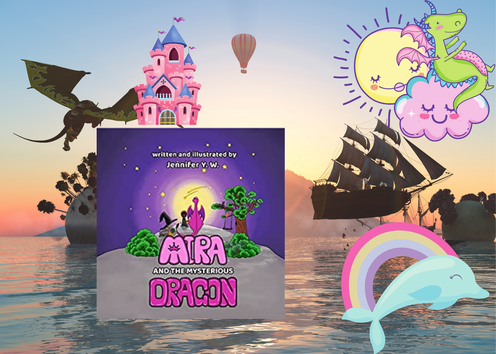
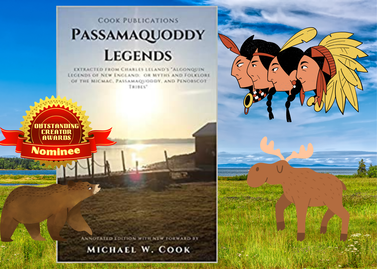
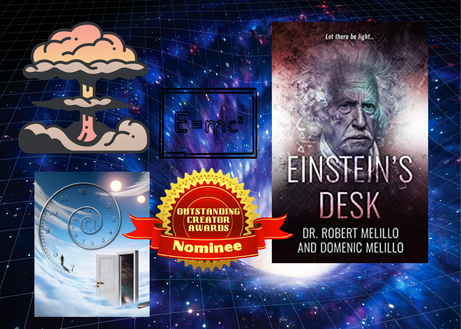
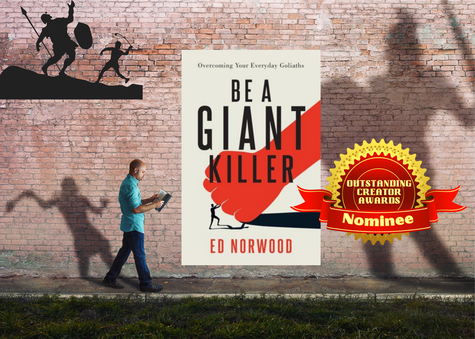
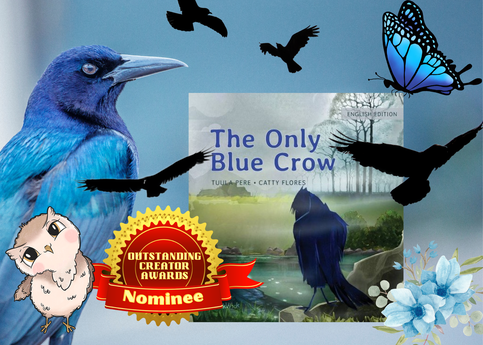
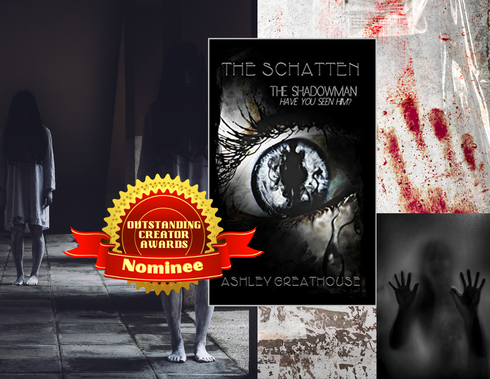

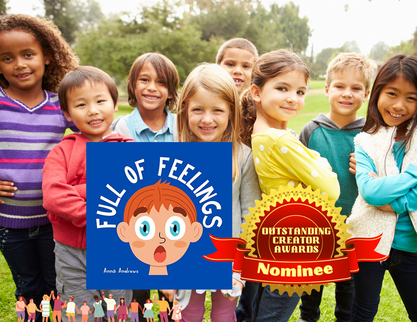
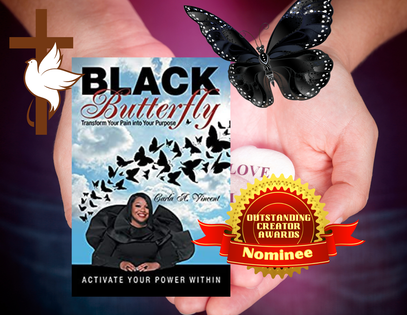
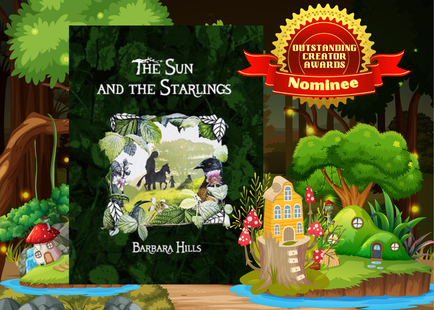
 RSS Feed
RSS Feed